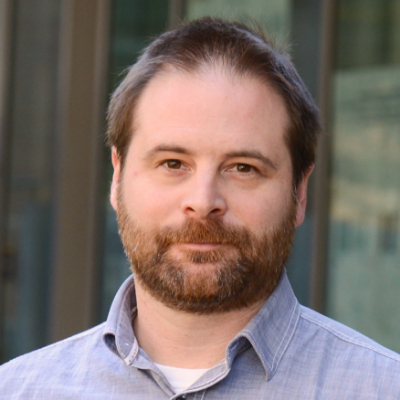Date/Time
Date(s) - 03/05/2024
9:00 am - 10:00 am
Location
HPNP 1404
Categories
Title: “Data-Driven Microbial Strain Engineering”
Ian Wheeldon, Ph.D.
Professor, Department of Chemical Engineering
University of California, Riverside
Abstract:
The United States bioeconomy, with yearly revenues upward of $400 billion, represents >2% of the national GDP. A large portion of this industry is the at-scale production of chemicals and reagents for the healthcare, food, feed and chemical industries. Many of the successes in this vital economic sector leverage naturally occurring microbial traits to create bioprocesses. A classic example of this is the yeast S. cerevisiae which is exploited for its ability to produce ethanol at high rates and titers. Other examples include the bacterial production of amino acids, copper bioleaching, and the production of enzymes in fungi. Creating new and improved microbial strains for these and other processes is time-consuming and costly – new approaches are needed to accelerate development.
The tools of synthetic biology can and are being applied for this purpose, but the most sophisticated of these tools are limited to use in model species that oftentimes do not possess native traits suited for industrial production. Here, we demonstrate the concept of data-driven strain engineering. This approach seeks to generate large data sets that describe the trait of interest from a systems-level perspective. This data is then used to identify genetic manipulations that promise to enhance strain performance. For example, we use population genomics to identify genes that lead to the high-level production of phenazines, naturally occurring redox mediators and fungicides produced in Pseudomonas.
In another example, we characterize cell-wide ribosome utilization to identify non-essential genes that can be knocked out to relieve bottlenecks in protein secretion. We validate these hits in engineered strains of Komagataella phaffii, a species used for the industrial production of proteins. Lastly, we apply our data-driven approach to engineering new high lipid-producing strains of the oleaginous yeast Yarrowia lipolytica. In this case, we conduct genome-wide functional genomic screens to identify hits that improve lipid biosynthesis or that create cell morphologies that are better suited for scale-up. Taken together, these strain engineering examples demonstrate a route forward for the rapid design of non-conventional microbial for the industrial production of a range of bioproducts.
Bio:
Dr. Wheeldon is a Professor and the Director of the Center for Industrial Biotechnology at the University of California, Riverside. His research is focused on synthetic biology for chemical synthesis. He received his Ph.D. in Chemical Engineering from Columbia
University in 2009 and completed two years of postdoctoral training at Harvard Medical School and the Wyss Institute for Biologically Inspired Engineering at Harvard University. Dr. Wheeldon received a Master’s of Applied Science from the Royal Military College of Canada (2003), and a Bachelor’s of Applied Science (1999) from Queen’s University, Canada.

